|
Biographical Log of Michael Furstner - Page 126
2008 ||
2009 :
Jan |
Feb |
Mar |
Apr |
May |
Jun |
Jul |
Aug |
Sep |
Oct |
Nov |
Dec | Page :
Previous |
Next |
Most Recent -
Next -
Previous -
Page 1 -
Photos -
Index -
Topics -
MP3s -
Jazclass Links
Thursday, November 26 2009
(diary, memories from Galicia)
Stories from Galicia 4 continues from November 24
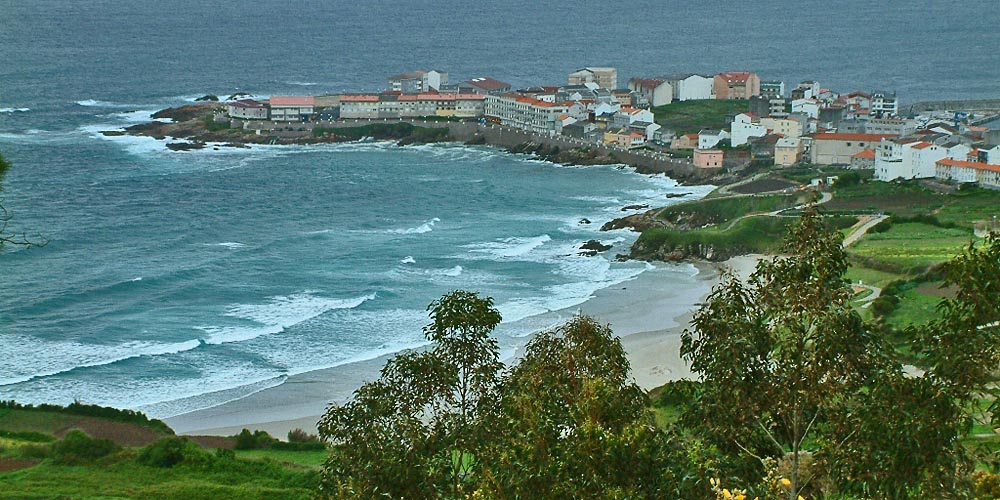 Joseliño's fears regarding my sister's health
did fortunately not eventuate and she has lived healthy and happily up to
this day. Her trip to Spain did have a profound effect on her however, at least in my
view. It represented (I believe) probably the first major milestone in Wivica's
development as an artist.
Joseliño's fears regarding my sister's health
did fortunately not eventuate and she has lived healthy and happily up to
this day. Her trip to Spain did have a profound effect on her however, at least in my
view. It represented (I believe) probably the first major milestone in Wivica's
development as an artist.
Before, Wivica's
paintings in the main reflected the usually grey, sunless, miserable days
prevailing in Holland. Gloomy pictures in dark greens, greys, browns and black of
depressing ocean waves and the likes.
Returning from Spain in 1961 however,
these dark colours totally disappeared instantly from her palette and were replaced by
bright and happy, yellows, orange, reds and whites. Although her choice these
days reflects a deeper inner light, rather than that early Spanish
exhilaration, those light colours from way back then (now augmented by bright
blues, purples and happy greens) have remained in her art ever since.
 On her visit to me in Galicia (NW Spain) in 1961 Wivica was in fact accompanying
my then "novia" Antien (in due course to become my wife). Both young
ladies were very much welcomed by the people there and revered by
Joseliño as well as the eccentric "viejo" of Caión, the 80
year old Basilio.
On her visit to me in Galicia (NW Spain) in 1961 Wivica was in fact accompanying
my then "novia" Antien (in due course to become my wife). Both young
ladies were very much welcomed by the people there and revered by
Joseliño as well as the eccentric "viejo" of Caión, the 80
year old Basilio.
Basilio was a wonderful sweet man, every time we
visited Caión he would meet us in the Hotel bar and talk to us. He had a
most interesting self made cigarette lighter which he used all the time.
It consisted of a tinder box made of the cut off hollow end of a bull's horn. He
would hold a piece of flint stone close over the tinder box and hit it with a
small piece of metal, so that the resultant spark would ignite the tinder.
On the final day of our very last stay in Caión Basilio came to
bid us farewell. The bottom of the left hose of his long trousers was tied tight
around his leg with a piece of string. When he bent over and undid the string a life
rabbit fell out off his pants.
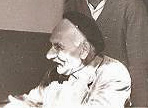 Basilio grabbed it, held it upside down by its hind
legs, then killed it with a quick, well aimed blow with the side of his hand
against the rabbit's neck. He then handed the now dead animal over to the girls
who did not quite know wether to smile (as thank you for Basilio's gift) or to
cry (for the sad death of the rabbit).
Basilio grabbed it, held it upside down by its hind
legs, then killed it with a quick, well aimed blow with the side of his hand
against the rabbit's neck. He then handed the now dead animal over to the girls
who did not quite know wether to smile (as thank you for Basilio's gift) or to
cry (for the sad death of the rabbit).
In the end we gave the rabbit over to the hotel
kitchen where they cooked it for our last evening meal there, which we
consumed with somewhat mixed emotions. But Basilio, Joseliño and all those other friends we made in Galicia have remained in our hearts ever since.
Stories from Galicia continues on November 27
Most Recent -
Next -
Previous -
Top -
Page 1 -
Photos -
Index -
Topics -
MP3s -
Jazclass Links
Friday, November 27 2009
(diary, memories from Galicia)
Stories from Galicia 5 continues from November 26
Freddie Warnaars had his
(geology) fieldwork area adjacent and to the South of mine, so we usually got
together every weekend.
When the two girls (Wivica and Antien) arrived we
made up a convenient foursome, riding on our two motorbikes, girls on the back,
everywhere our fancy took us : Caión, La Coruña and of course also
Santiago de Compostela.
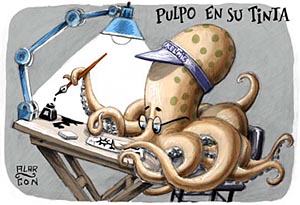 My "home base" in Santiago always was Manolo's Bar on the Calle do Franco,
in the heart of the old city. (The bar had perhaps another name, but I forgot).
Manolo, the bar owner, was a large, easy going, friendly middle aged man,
with always a gentle smile on his face. I liked him a lot.
My "home base" in Santiago always was Manolo's Bar on the Calle do Franco,
in the heart of the old city. (The bar had perhaps another name, but I forgot).
Manolo, the bar owner, was a large, easy going, friendly middle aged man,
with always a gentle smile on his face. I liked him a lot.
The bar stretched
over the entire (around 20 meters) width of the block between two narrow parallel
streets. One end of the bar had an entrance to the Calle do Franco, the other
end opened up to the other street.
It was therefore a very convenient
short cut to get from the one street to the other. But of course no one
in his right mind would rush through Manolo's Bar without having at least one
drink there. What else would you do with the time saved by taking that short cut
??
Manolo's Bar also served tapas and meals. My absolute favourite was a
large oval shaped white dinner plate with Pulpo en su Tinta (octopus
served in its own ink). Manolo's wife, after emptying its ink sac, would
casually throw the octopus on the (not all too clean) tile floor behind the bar,
then tenderise it by repeatedly hitting it with the flat side of a large ax.
When satisfied she would pick it up and take it into the kitchen to (we perhaps
somewhat too optimistically hoped) wash it clean, then cut it into pieces and
prepare it. But whatever happened in the kitchen, when served up to me the
octopus tasted deliciously.
On the floors above the Bar Manolo had several
Budget Hotel style rooms where we always slept, when staying overnight in
Santiago.
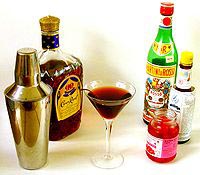 From Manolo's bar it was but a short stroll along the Calle do Franco to the
Praza do Obradoiro (central square) with is magnificent Catedral del
Apóstol on one side and the equally famous 500 year old Hostal dos
Reis Católicos on the side at right angles to it. Our Professor Den Tex always
stayed at the Hostal when checking up on our fieldwork each year, but us humble
students could no way afford such luxury.
From Manolo's bar it was but a short stroll along the Calle do Franco to the
Praza do Obradoiro (central square) with is magnificent Catedral del
Apóstol on one side and the equally famous 500 year old Hostal dos
Reis Católicos on the side at right angles to it. Our Professor Den Tex always
stayed at the Hostal when checking up on our fieldwork each year, but us humble
students could no way afford such luxury.
The four of us (Antien, Wivica, Freddy and I) however went one Sunday
afternoon into this historic hotel to have a drink in its magnificent bar.
I
don't know why, but at the time I had a thing for Manhattan Cocktails,
and mixed them myself back in Holland at every opportunity. So it was only
natural that we should order 4 Manhattans at this plush bar.
In Spain in those days all cocktails were usually mixed using cheap,
locally produced spirits, but not in this bar ! The whisky was the
authentic stuff, legally imported from the Americas and fully taxed : very
expensive!!
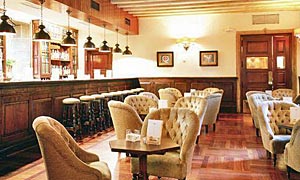 So when the Bar man handed me the tab I almost feinted. Freddie, looking over my
shoulder, also suddenly felt very unwell. However my novia Antien came
immediately to the rescue "rondje van Opa" (Grandpa's shout) she
pronounced with a happy smile on her face.
So when the Bar man handed me the tab I almost feinted. Freddie, looking over my
shoulder, also suddenly felt very unwell. However my novia Antien came
immediately to the rescue "rondje van Opa" (Grandpa's shout) she
pronounced with a happy smile on her face.
It was Antien's Grandfather, Opa Jordaan, who had given the two girls this
holiday to Galicia and supplied them with enough cash funds to meet any
"unforeseen eventualities". This, in Antien's view, was clearly such
"eventuality". We all breathed a thigh of relief and happily toasted Opa's
health with our very very expensive Manhattans.
From that day onwards rondje van Opa became a much anticipated
everyday ritual. I am sure no man in history has been wished so much good
health in such a short period of time as our Opa Jordaan. We made sure
however to always select much more modest establishments for this event than
the one on that very first festive occasion.
As a sign of our great appreciation we bought Opa Jordaan a present on
one of the last days of our stay in Galicia : an (what we believed to be)
authentic, ancient, 60 cm (2 ft) high amphora. I carried it with me all
2,200 kms back home, strapped on the back of my motorbike.
Opa Jordaan
accepted our gift with good grace and kept it in his lounge room until, after
his death a few years later, it fell back into Antien's and my hands again. We
brought the amphora with us to Australia and as far as I know it is still in
Antien's possession to this day.
Stories from Galicia continues on March 8, 2010
Most Recent -
Next -
Previous -
Top -
Page 1 -
Photos -
Index -
Topics -
MP3s -
Jazclass Links
Saturday, November 28 2009
(diary, Dutch Jazz legend Pia Beck has died)
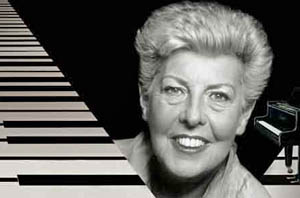 Ab van der Meij, one of my childhood friends from
the farm opposite us on the Flierderweg,
sent me an email yesterday. Remembering my fondness for Pia Beck, he told me that this legendary Jazz
vocalist-pianist, has just died (Nov.26) from a heart attack, age 84 in her home
in Torremolinos on the Costa
del Sol.
Ab van der Meij, one of my childhood friends from
the farm opposite us on the Flierderweg,
sent me an email yesterday. Remembering my fondness for Pia Beck, he told me that this legendary Jazz
vocalist-pianist, has just died (Nov.26) from a heart attack, age 84 in her home
in Torremolinos on the Costa
del Sol.
Pia Beck travelled all over the world performing at top venues, but when in
Holland she always played in her own Nightclub De
Vliegende Hollander (The Flying Dutchman) in Scheveningen at the Gevaers Deynootplein. Pia and her
Night Club were a Dutch institution.
In the 1950s, when Pia and De Vliegende Hollander raised to fame, I frequently
stayed during
the summer months with my Grandmother Grotie, who then lived in a flat at the
Gevaers Deynootweg, only a few hundred meters away from De Vliegende Hollander
nightclub.
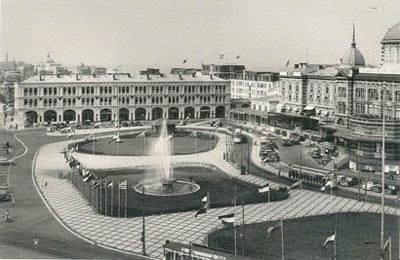 De Vliegende Hollander was in a basement cellar underneath the far left
end of the long rectangular building on the adjacent photo. There was a covered
arcade behind the arches.
De Vliegende Hollander was in a basement cellar underneath the far left
end of the long rectangular building on the adjacent photo. There was a covered
arcade behind the arches.
Outside, underneath the base of the pillars
rising up between the arches were two or three low
windows which provided fresh air circulation for the basement Nightclub.
These small
windows, about 120 cm wide and 60 cm high (4 by 2 ft), opened inwards on
horizontal hinges at their base to a 45° angle.
In the evening when Pia Beck performed, half a dozen youngsters, their knees on
the outside street pavement, leaning over the open windows (two to each window)
and their
heads just over the top of it, had an excellent view down into the club and the
musical performance. Rather than chasing them away, Pia was quite happy with
this young audience and let them watch right through the evening. In fact, it
became a well known eccentric feature of De Vliegende Hollander.
On one night (in the early 1950s) I was lucky enough to secure a spot
at one of these windows. That night a friendly and amused adult guest in the
Club offered us each a bottle of Coca Cola (then costing 2 guilders in the Club
and considered a fortune by us boys). So I crouched over that window all night,
happily drinking my Coke from a straw, and soaking in the atmosphere and above
all of course Pia Beck's wonderful performance.
It was the very first Jazz
Concert I ever attended, and to this day the most exiting one I have ever been
to.
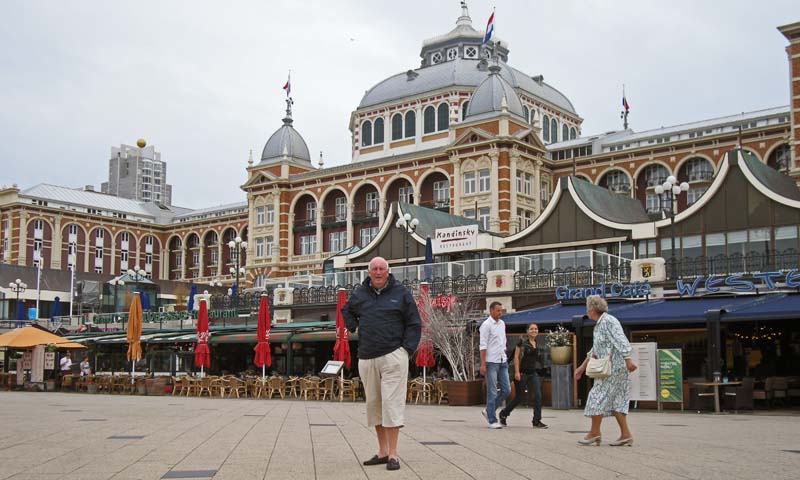 Sometime during the 1970s (I believe), the large building, including De Vliegende Hollander, were pulled down and replaced with shops and apartments.
Sometime during the 1970s (I believe), the large building, including De Vliegende Hollander, were pulled down and replaced with shops and apartments.
The whole Gevaers Deynootplein was redesigned with several large buildings erected on the previously large open square and De Vliegende Hollander nightclub found a new home in one of these buildings.
I visited their new venue once in 1982 with a lady friend (Lydia ??). A great Jazz combo was playing that night and we had a wonderful time which ended overnight in the adjacent Kurhaus Hotel (one of the very very rare "one night stands" in my life, which happened because of Lydia's extraordinary resemblance to "She").
PS
Recently the new Gevaers Deynootplein was judged the ugliest little spot in the Netherlands. Sadly it will probably never become again the stylish place it was as I know it from the 1950s and 60s. Another sad case where materialistic greed has prevailed over style, history and the wishes of the general public.
(Pia Beck may well have all that seen coming, because by 1965 she had already moved to Torremolinos.)
Most Recent -
Next -
Previous -
Top -
Page 1 -
Photos -
Index -
Topics -
MP3s -
Jazclass Links
Sunday, November 29 2009
(diary, Opa Jordaan)
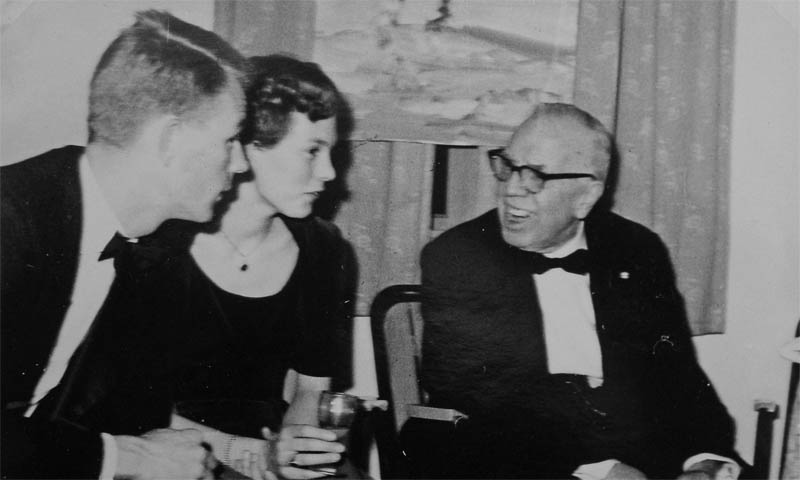 Antien's Grandfather, Opa
Jordaan, retired from business except for a function (Director ?) at the
Kamer van Koophandel in Zutphen, was a very likeable gentleman, who had never lost
the soft edges from his provincial country life upbringing. He had a wide general
interest, especially in things concerning tradition and history. Opa Jordaan
was also very generous, especially to his four Grandchildren, who often
endearingly called him "Opaatje" despite his tallness.
Antien's Grandfather, Opa
Jordaan, retired from business except for a function (Director ?) at the
Kamer van Koophandel in Zutphen, was a very likeable gentleman, who had never lost
the soft edges from his provincial country life upbringing. He had a wide general
interest, especially in things concerning tradition and history. Opa Jordaan
was also very generous, especially to his four Grandchildren, who often
endearingly called him "Opaatje" despite his tallness.
When I got to know him (after I started going out with Antien) he lived in a nice
house on the Singel in Zutphen and owned a light creme Fiat 600 (with open
roof) in which Antien drove him happily around whenever he did not want to take
the steering wheel himself. Antien also was often allowed to use the car for her
own pursuits, driving me around at times, which was a happy change from my 125cc
DKW motorbike. (We also, at several occasions, did some pretty serious
petting in the back. How we managed to do that in such a tiny car I still don't
know.)
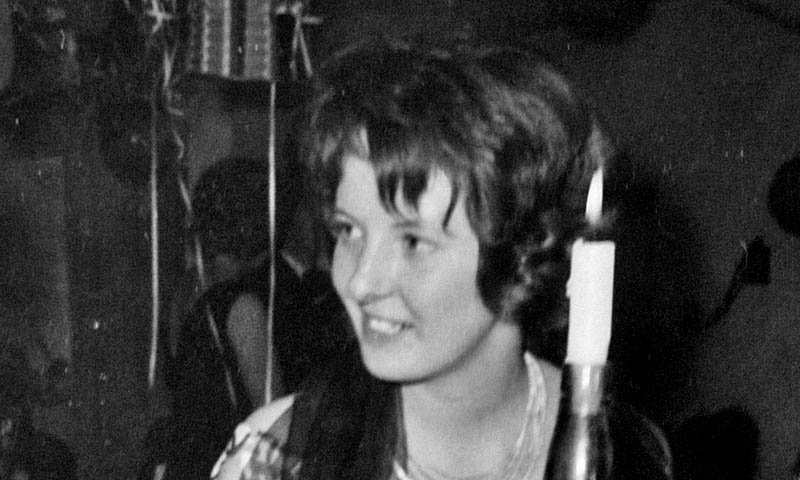 Antien and I frequently went to visit him in the late afternoon for drinks. Once
settled down in his living room overlooking the Singel (large pond and popular
skating place in winter), he always asked me to get the drinks. For him this was
a specially home made cocktail made from vermouth (or similar fortified wine) and
various spices. It was always ready for me in the fridge poured into a special
antique cocktail glass, "het Haantjes glas", so called because it featured
a hand painted colourful rooster on the glass.
Antien and I frequently went to visit him in the late afternoon for drinks. Once
settled down in his living room overlooking the Singel (large pond and popular
skating place in winter), he always asked me to get the drinks. For him this was
a specially home made cocktail made from vermouth (or similar fortified wine) and
various spices. It was always ready for me in the fridge poured into a special
antique cocktail glass, "het Haantjes glas", so called because it featured
a hand painted colourful rooster on the glass.
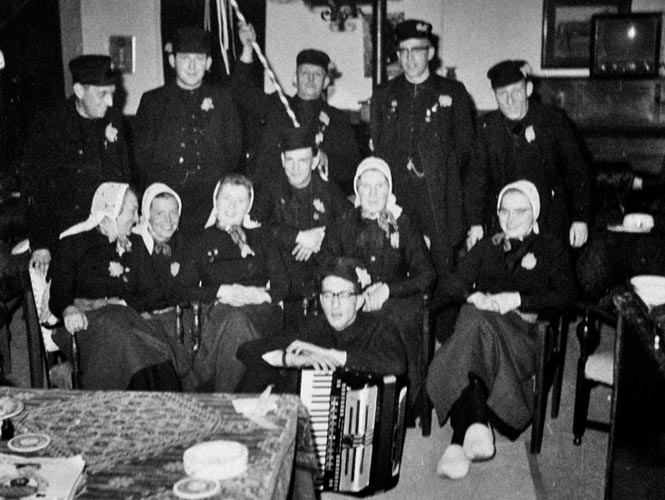 Besides the holiday in Spain for Antien and my sister he also gave Antien and me
a wonderful Engagement party in 1962. This was held in Cafe Restaurant
De Laatste Stuiver (The Last Penny) in Eefde.
Besides the holiday in Spain for Antien and my sister he also gave Antien and me
a wonderful Engagement party in 1962. This was held in Cafe Restaurant
De Laatste Stuiver (The Last Penny) in Eefde.
About eighty guests
attended and were entertained by the 8-piece Student Jazz Band from Leiden and
the local folkloristic dance group De Gorsselse Boerendansers.
Opa Jordaan lived to see his very first Great-grandchild, our daughter Babette. When he
visited us once in Assen
(where I was based as a Reserve Artillery Officer
for one year), he was appalled to see his Great-grandchild crouching around on
the bare concrete floor in our living room (we lived on only a small Army
allowance then). So he immediately ordered us to purchase, at his expense, some
descent floor covering, which we did : a bright tomato red linoleum which we
absolutely loved because it combined so well with the small off white carpet underneath our handcrafted iron coffee table.
Sadly Opa Jordaan died after a very brief illness in the Hospital at the
Coehoornsingel (Zutphen) in 1965. Antien and I went there to say goodbye to him.
My brother Claus had made
a beautiful photo of our then 1 year old daughter, and a large size copy of it
was placed near the foot end of Opa Jordaan's hospital bed. He loved to look at it, and it
was quite possibly the very last conscious image he saw before departing from this
world.
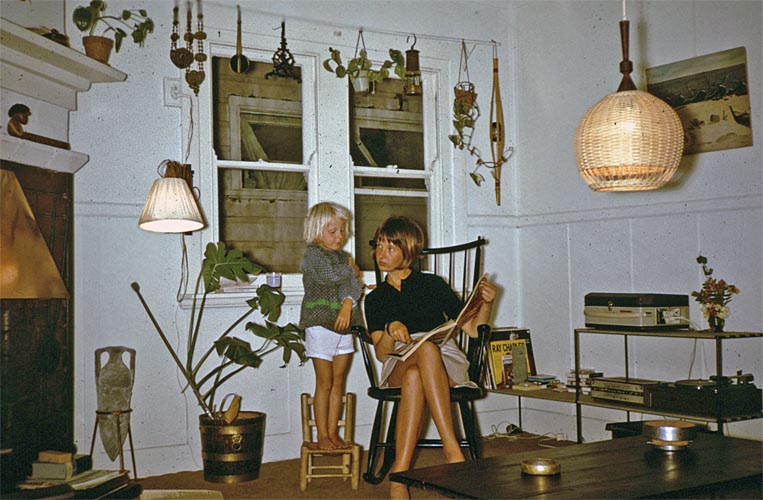 After Opa Jordaan's death some of his possessions were divided amongst his four
grandchildren. We of course received the amphora (see adjacent photo) we had given him a few years earlier as a present. I made
also a special request for het Haantjes glas, which was granted, and I drank
from it while still in Holland with great pleasure.
After Opa Jordaan's death some of his possessions were divided amongst his four
grandchildren. We of course received the amphora (see adjacent photo) we had given him a few years earlier as a present. I made
also a special request for het Haantjes glas, which was granted, and I drank
from it while still in Holland with great pleasure.
In due course het Haantjes glas was packed with all our other belongings for
shipment to Australia. After our arrival there and purchase of our first home in
Merewether (a suburb of Newcastle in NSW, 100 km North of Sydney) in 1966,
we waited with anticipation for our two cases with personal effects to arrive.
Sadly some corrupt wharfies dropped (I believe
deliberately) our cases from the crane onto the Sidney wharf. They stole several
items from the burst open cases and then let them stand in the soaking rain
before having them trucked on to our address in Merewether.
By a miracle the
amphora was still in one piece but most of the dinner plates and glasses
were destroyed, as well as our soaked clothes, mildewed shoes and our now
irreparably damaged, beautiful coffee table, which had been handcrafted by the
renown artist blacksmith Jonkers from our village Gorssel.
We unpacked all this in stoic silence, but when I unwrapped the shattered remains
of het Haantjes glas Antien and I both burst out in tears. Some items,
through the emotional memories of events or persons associated with them,
have a value which goes way beyond their normal usefulness or natural
beauty. Het Haantjes glas most certainly was one of those.
Most Recent -
Next -
Previous -
Top -
Page 1 -
Photos -
Index -
Topics -
MP3s -
Jazclass Links
Monday, November 30 2009
(diary)
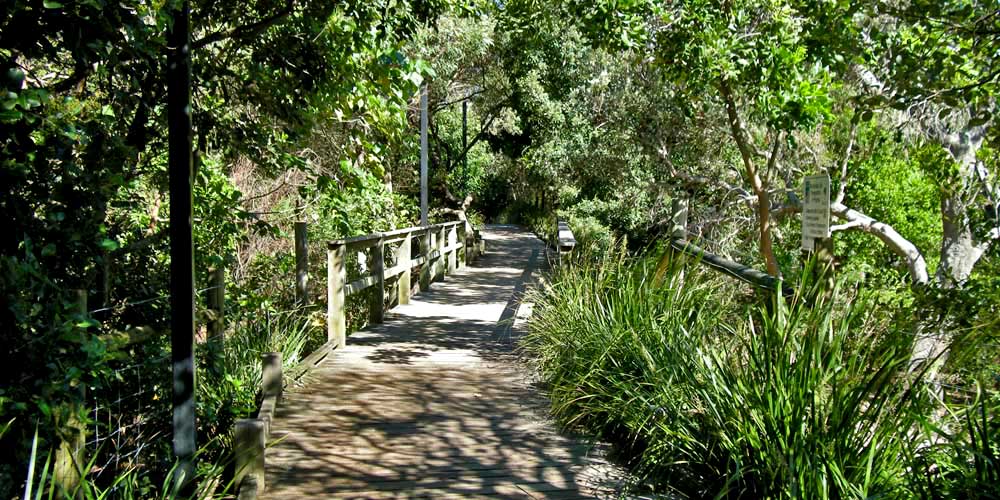 Well, that was quite a walk down memory lane this last week. Now, what happened
this week here at the Sunshine Coast. Every day around midday I have been walking
down this lane through the dunes behind Mooloolaba Beach for my daily walk and swim.
Well, that was quite a walk down memory lane this last week. Now, what happened
this week here at the Sunshine Coast. Every day around midday I have been walking
down this lane through the dunes behind Mooloolaba Beach for my daily walk and swim.
The weather
has been variable, mostly fine, never cold. The last two days strong winds at the
coast, whipping up the waves into irregular patters, foaming down the beach,
terrific to swim in and more exhilarating than the most luxurious spa.
Last night a huge thunderstorm with lots of rain and an electricity blackout
for several hours, so Doug took me to the nearby Chancellor Park Tavern for an
evening meal.
I had my scheduled checkup with the Urologist. My PSA (prostate blood
reading) has gone down to 4.5 (from 6.9 in February) and is now probably just about
within the "normal" range for my age, but Kirsten wants to keep an eye on the
situation so I will see her again in 12 months time.
Babette is in Japan on business for a week, back Saturday, so Doug and I are
baching it at present. I took him out for dinner last Friday at a new BYO (Bring Your Own drinks) Greek
restaurant, Ella-Messa, on Brisbane Road in Mooloolaba. The place was
jumping and fully booked when we got there, but somehow they managed to get us a
small table inside.
The floor is bare rough concrete (so that, Greek style, plates can be smashed on
it explained the waitress), so the noise (voices echoing everywhere) was
deafening, but somehow this added to the general atmosphere. We selected five
entrees rather than main courses, which were all very enjoyable (octopus,
whitebait, meatballs, pork sausage, dips, pita bread). In short, we had a great
time and will be back for sure.
Comments -
Most Recent -
Next Page -
Previous -
Top -
Page 1 -
Photos -
Index -
Topics -
Jazclass Links
Copyright © 2009 Michael Furstner
|


 Basilio grabbed it, held it upside down by its hind
legs, then killed it with a quick, well aimed blow with the side of his hand
against the rabbit's neck. He then handed the now dead animal over to the girls
who did not quite know wether to smile (as thank you for Basilio's gift) or to
cry (for the sad death of the rabbit).
Basilio grabbed it, held it upside down by its hind
legs, then killed it with a quick, well aimed blow with the side of his hand
against the rabbit's neck. He then handed the now dead animal over to the girls
who did not quite know wether to smile (as thank you for Basilio's gift) or to
cry (for the sad death of the rabbit). 









